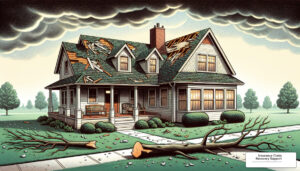Hurricane Laura: The Aftermath

About Hurricane Laura Prior to making landfall in the US, Laura had produced serious damage and took nearly two dozen lives across Hati and the Dominican Republic. As it was moving through the Gulf of Mexico, Laura quickly grew from a Category 1 to a Category 4 within 24 hours. In the early morning of […]
Insurance Claim Schemes

AUSTIN, Texas – May 21, 2015 – PRLog — Insurance Claim Recovery Support LLC, a leading licensed public insurance adjusting firm in Austin, Texas urges policyholders dealing with storm damage property in the Counties of Harris, Travis, Brazoria, Montgomery, Fort Bend, Tarrant, Dallas, and Johnson from weather-related events occurring April 16, 2015, through April 19, 2015, to be aware […]




